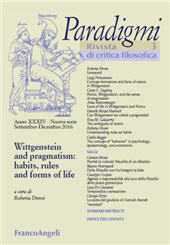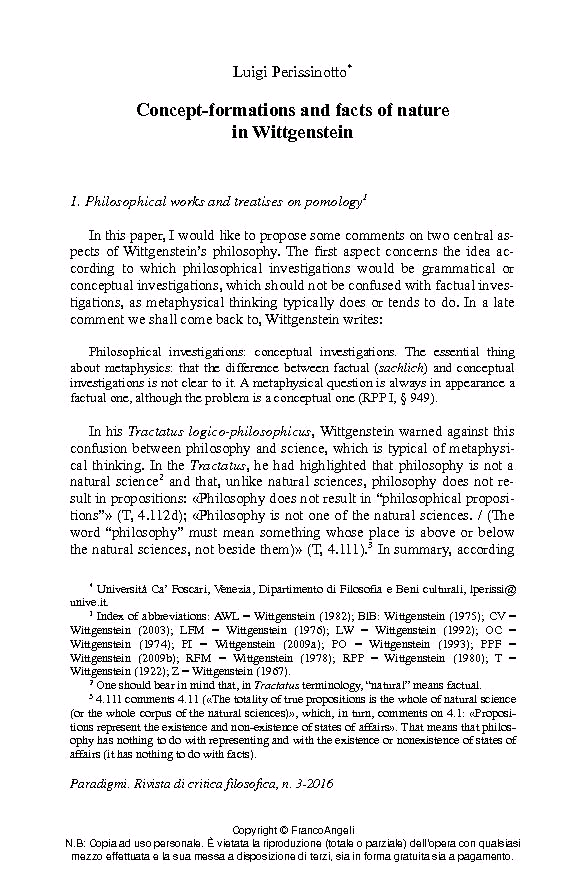Concept-formations and facts of nature in Wittgenstein
11-31 p.
Questo saggio introduce e discute due aspetti importanti della filosofia di Wittgenstein. Il primo è la sua insistenza sul fatto che le indagini filosofiche sono indagini concettuali o grammaticali, che non devono essere confuse con le indagini fattuali. Si mostrerà che è esattamente questo tipo di confusione tra il concettuale e il fattuale che caratterizza, secondo Wittgenstein, il pensiero metafisico. Il secondo aspetto, connesso strettamente al primo, concerne il modo in cui Wittgenstein cerca di mostrare che le indagini concettuali o grammaticali devono tenere conto della corrispondenza tra le nostre formazioni grammaticali o concettuali, da un lato, e molti fatti generali della natura, dall'altro, senza diventare o assumere in questo modo la forma di una scienza o di una storia naturale. [Testo dell'editore].
The present essay introduces and discusses two important aspects of Wittgenstein's philosophy. The first one is his insistence on the fact that philosophical investigations are conceptual or grammatical investigations, not to be confused with factual investigations. It will be shown that it is exactly this kind of confusion between the conceptual and the factual, which characterizes, according to Wittgenstein, metaphysical thinking. The second aspect, narrowly connected to the first one, concerns the way in which Wittgenstein tries to show that conceptual or grammatical investigations must take into account the correspondence obtained between our grammar or our conceptual formations on one hand and many general facts of nature on the other, without therefore becoming or taking up the form of a natural science or natural history. [Publisher's Text].
Forma parte de
Paradigmi : rivista di critica filosofica : XXXIV, 3, 2016-
Artículos del mismo número (disponibles individualmente)
-
Información
Código DOI: 10.3280/PARA2016-003002
ISSN: 2035-357X
MATERIAS
KEYWORDS
- Concetti, Grammatica, Metafisica, Natura, Psicologia, Wittgenstein
- Concepts, Grammar, Metaphysics, Nature, Psychology, Wittgenstein



